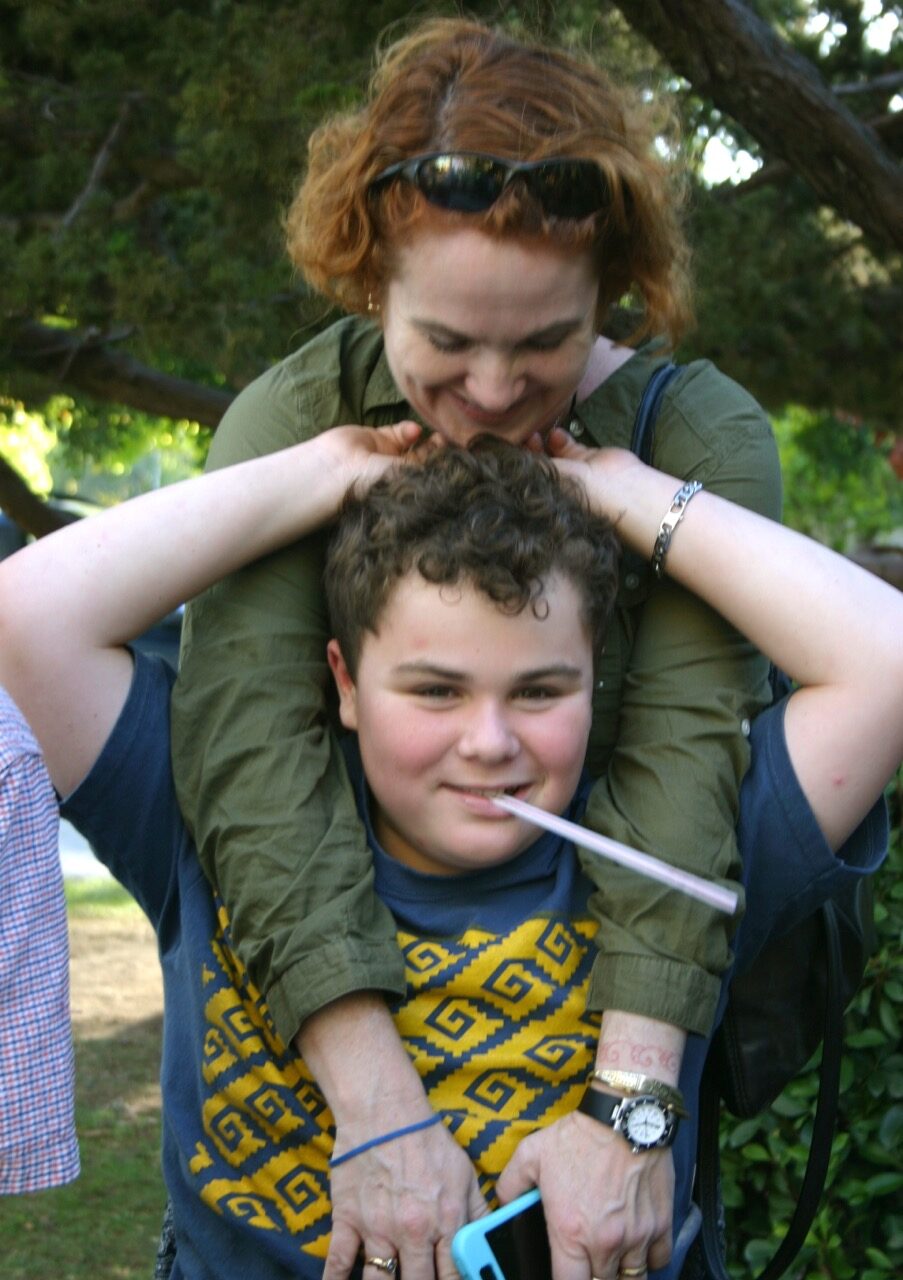For people in under-represented communities—autistic people included—there is nothing quite like seeing “someone who moves like you” in mainstream storytelling. We talked with Pixar’s Erica Milsom, who wrote and directed the lyrical SparkShorts film Loop, about the importance of listening to people who actually inhabit the worlds creators want to bring to the screen, the power of storytelling and representation, why it matters that Loop’s autistic character Renee is both a girl and a person of color, and the importance of connection on a purely human level—especially between people who communicate or act differently from each other. Loop writer and director Erica Milsom. Photo courtesy Pixar. [image: A white woman with a silvery-gray bob and clear-framed glasses.] Content note: mention of children of color killed by police Thinking Person’s Guide to Autism: Erica, I just want to thank you so much for agreeing to this interview, and for the work…
Tag: Disability
Shannon Des Roches Rosa twitter.com/shannonrosa I want to make this as friendly as possible, so I think it’s important to start by clarifying terms: Inclusion, my lovelies, is a real and basic human right, and it simply means autistic and other disabled people have the right to be out and about in the world, and not segregated or hidden away as used to be the default for their community members. Inclusion does not mean forcing people like my high-support autistic son to be in places they don’t want to be, that aren’t set up for them, or in which they aren’t welcome. But even when we embrace inclusion as a disability rights baseline, my son still doesn’t get to do all the things—but that’s because of accessibility barriers, not because inclusion itself is a flawed concept. Even though The Americans with Disabilities Act (ADA) installed accessibility as the law of our…
“I like to remind people that health departments and institutions are not just the buildings: There’s mothers and fathers and uncles and aunts and brothers and sisters working there. And we have people who we care about, people who are from all walks of life. And we are doing it for them as well.”
We recently co-hosted a webinar on Disability and Inclusion Strategies During COVID-19 with Magical Bridge foundation, to address some of the issues disabled and autistic people and their families are struggling with right now. Jill Asher from Magical Bridge moderated, TPGA’s senior editor Shanon Rosa ran the questions, and our panelists were three disabled parents of chidren with disabilities: Our own editor Carol Greenburg, and disability consultants Anne Cohen and Deborah Vick. We hope this is the first of many useful sessions! Video and full transcript below. Jill Asher: Hi everyone. Good morning, or good afternoon wherever you are. My name is Jill Asher. I’m the executive director and co-founder of Magical Bridge. We are so incredibly grateful to have you join us today as we discuss disability and inclusive strategies during COVID-19. We hope everyone is safe and health and sheltering in place right now, wherever you are. A…
Photo © Mundial Perspectives | Flickr / Creative Commons [image: A white teacher with shoulder-length straight dark brown hair holding up a globe to a group of young students of varied races, several of whom are raising their hands, all of whom are seen from behind.] Tim Villegas www.thinkinclusive.us I spend a lot of time thinking about inclusion. Most of this energy is spent coming up with ways to explain inclusive education clearly and succinctly so that everyone understands what it is and why it is essential. Because, to me, it is one of the most crucial things we can do for students (disabled or non-disabled). Here’s the challenge. You probably already have thoughts and opinions about inclusion. Maybe you have already decided that the cognitive difficulties or level of autism your child has, would not be appropriate in a general education classroom. Perhaps you have a notion that inclusion…
Color Communication Badges by Button Justice League, on Etsy [Image Description: Three 1.5 inch pinback buttons each with a vivid color, a bold black word and a black shape underneath the text. From left to right: a “Red” button with a octagon, a “Yellow” button with a triangle, and lastly a “Green” button with a circle.] Lydia X. Z. Brown @autistichoya [Note from Lydia: This originally appeared on Twitter as a thread on 4 June 2018, and is an incomplete list of suggestions.] Some tips on access-centered event/program organizing/planning (some are mine; many I learned from other fabulous folks): (1) When you put information about the event online, whether on (a) a website, (b) in email announcements, or (c) social media, only include images if you include alt-text and text-only captions. (2) Don’t rely on online/email/social media to get the word out. Call people too. Many comrades with intellectual disabilities…
Hyperverbal expression, whether it is verbalized or experienced internally, is autism and it is a disability. It has less to do with the volume of words expressed and more to do with the processing style that is common to some autistic people.
These revelations, about presuming competence, human dignity, and the least dangerous assumption—they don’t apply only to kids who are secret geniuses. They apply to everyone. They are the most important for the kids who really do have intellectual disabilities, who really can’t read or use full sentences and who really do need extensive support.
Shannon Des Roches Rosa www.squidalicious.com Content note: This article discusses abuse and murder. Photo © Steve Silberman [image: a white woman, standing behind a white teen boy with brown curly short hair. He is looking at the camera. Her arms are over his shoulder, his arms are up and tickling under her chin.] When parents like me talk about our kids with disabilities and intense support needs, we have to be thoughtful. We need to make it quite clear that our kids are much-loved and very awesome human beings. We should never, ever state or imply that any challenges we face as a parent are our children’s fault. We need to handle their privacy with delicacy. And we shouldn’t accidentally enable disrespect towards children who are already too-frequent magnets for morbid fascination, and pity. But we do need to talk, because our parenting gig is not like other parenting gigs.…
Photo © US Department of Education | Creative Commons / Flickr [image: Three students at computer workstations, seen from behind.] Shannon Rosa Senior Editor Wealthy people using their privilege to bypass regular people problems like paying taxes is nothing new. But using that clout to exploit disability accommodations—to give their college-aspiring children truly unfair and also illegal advantages—is infuriating on multiple levels. As disability policy professional Rebecca Cokley noted at Teen Vogue: “This behavior is harmful because when celebrities and others with privilege use a marginalized community’s civil rights as a ‘VIP pass,’ it frames reasonable accommodations as something ‘special’ that you should be able to buy, versus actual civil rights that give people with disabilities an equal seat at the table.” Adrienne Wichard-Edds reported on the scandal for the Washington Post, from the perspectives of several irate parents of students with disabilities: “For children who really do struggle with…








